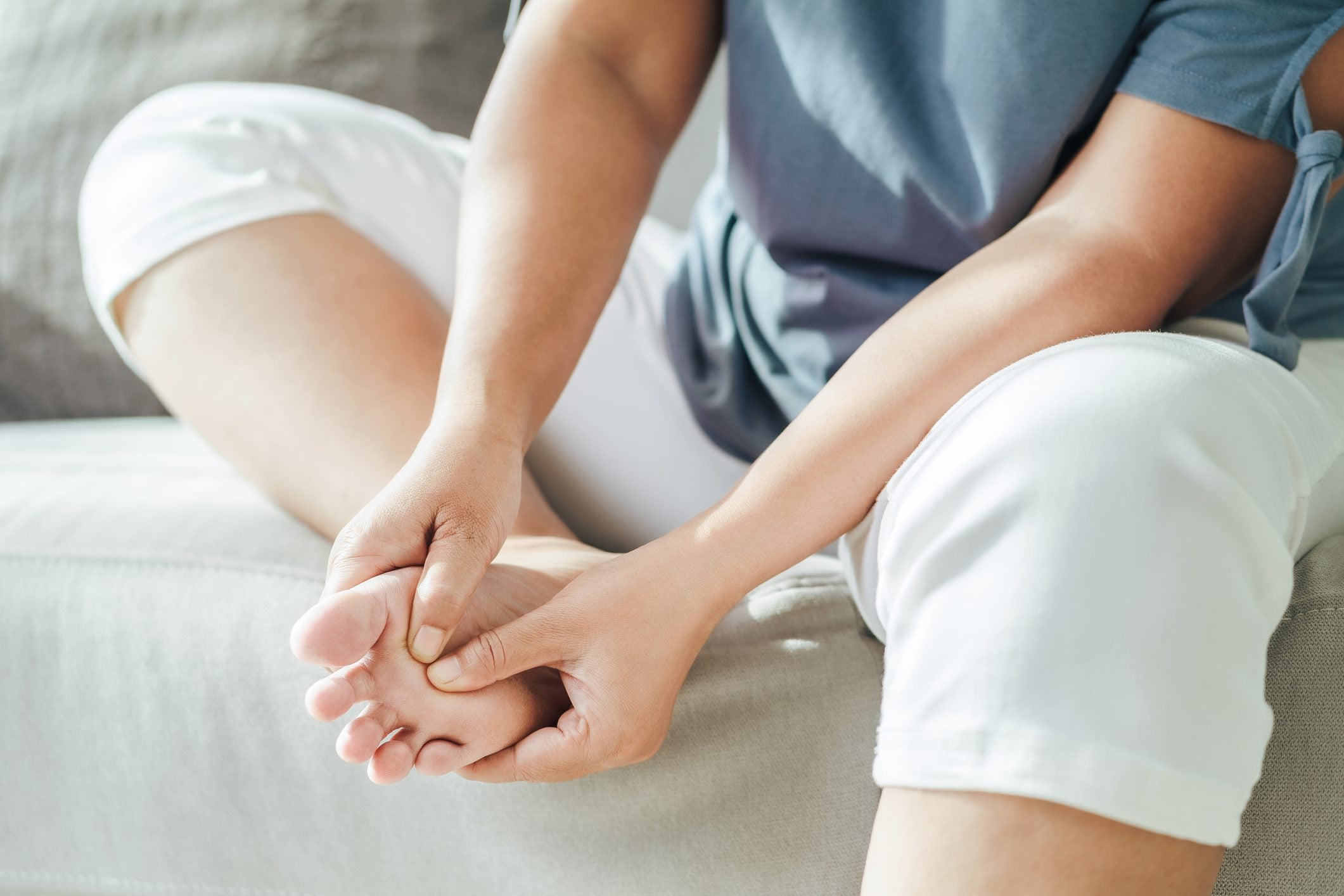
Published on Nov 14, 2025
Last modified on Dec 22, 2025
Is DHEA Good For Menopause Symptoms? What to Know.
5 min read
What is DHEA?
Dehydroepiandrosterone, or DHEA (because who can say that full word) is a lesser known hormone produced by the adrenal glands in men and women, as well as the ovaries and testes. It’s thought of as a “building block” hormone in that it helps our bodies produce other hormones, such as estrogen and testosterone. Like the latter two, it peaks during our twenties and declines with age.
In fact, by the time a person reaches their 50s–60s, circulating levels are typically 70–90% lower than in young adulthood. Around menopause, ovarian estrogen and progesterone production falls sharply, but DHEA continues its gradual decline, not a sudden drop.
What happens with DHEA decreases?
Many of us are familiar with some of the unwelcome effects of fluctuating hormone levels in perimenopause and menopause, but what exactly does lower DHEA levels mean for the body? Well, because DHEA can convert to estrogen and testosterone, low levels may contribute to the following symptoms:
- Fatigue
- Low libido
- Vaginal dryness/pain
- Brain fog
- Mood changesLoss of muscle mass or bone density
While declining estrogen and testosterone are more directly responsible for the symptoms above, DHEA does have a behind-the-scenes role since lower DHEA can mean lower estrogen and testosterone levels.
DHEA for the treatment of menopause symptoms
As with hormone therapy (more on that in a moment), there are lots of claims online as to the benefits of DHEA, some of which are supported by evidence…and some of which the jury is still out on. To understand which claims are legitimate, we need to take a look at the difference between oral and vaginal DHEA supplementation.
Oral DHEA supplementation
Oral DHEA supplements are over-the-counter products you can buy online. They are often touted for their benefits in treating menopausal symptoms and improving sexual function and overall wellbeing. There are also some claims around potential antiaging benefits through improvement of cognitive function/concentration and body composition. Sounds good, right?
Unfortunately, studies supporting these claims are very limited, and for that reason, they are not recommended by The Menopause Society or Endocrine Society. There is also some concern around side effects such as hair growth and oily skin.
Intravaginal prasterone
Vaginal DHEA, sold under the brand name Intrarosa, is a prescription vaginal suppository used to treat moderate to severe pain during intercourse caused by genitourinary syndrome of menopause. GSM is the not-so-friendly term that refers to various urinary, vulvar, and vaginal symptoms such as vaginal dryness, pain with sex, and pelvic pain. (But hey, it beats its predecessor term, “vaginal atrophy.”)
Intrarosa works by delivering the steroid prasterone (also known as DHEA) directly to the vaginal tissues, where it is converted into active sex hormones, including estrogen and testosterone. Intrarosa is the only form of DHEA that is FDA-approved.
READ MORE: Elektra Guide to Supplements for Menopause
What’s the difference between DHEA and MHT?
So if DHEA is a hormone, doesn’t that make oral supplementation or Intrarosa hormone therapy? Actually, no…tricky, we know. Here’s how they differ:
Menopause hormone therapy (MHT)
MHT, previously referred to as hormone replacement therapy or HRT, involves using a combination of estrogen and progesterone (and sometimes testosterone) to treat symptoms of menopause. MHT may also offer some long-term health benefits such as prevention of osteoporosis and cardiovascular disease, but more research is needed there. The main thing here is that MHT is a targeted treatment and delivers the hormones directly to the tissues they are needed in.
DHEA
DHEA, on the other hand, is a precursor hormone, and deficiencies in this hormone are directly related to estrogen and testosterone deficiencies. In other words, if you’re experiencing symptoms related to decreasing estrogen and testosterone, DHEA is probably low, too, and vice versa. So, will taking DHEA supplements help with my other hormone levels? Not exactly.
Oral DHEA, or DHEA taken in capsule form, raises the amount of DHEA circulating in the blood. It may modestly increase testosterone levels, but it isn’t proven to consistently increase estrogen levels, and certainly doesn’t restore estrogen to levels high enough for relief from symptoms like hot flashes or brain fog.
Can you take DHEA and MHT together?
While we don’t recommend oral DHEA supplementation, vaginal prasterone (DHEA) can be helpful to have in your sexual health toolkit, either on its own or alongside hormone therapy for extra tissue support. Like vaginal estrogen, vaginal DHEA is safe for almost everyone since it works locally and doesn’t raise levels of hormones in the bloodstream.
The Bottom Line
Oral DHEA supplements are over-the-counter products marketed to menopausal women for support with symptoms, but there’s little evidence to support their purported benefits. Vaginal DHEA, on the other hand, is an FDA-approved treatment for pain with sex and can be very effective.
Interested in discussing treatment options for libido changes? Schedule a visit with a board-certified, menopause-trained clinician >>
READ MORE:



